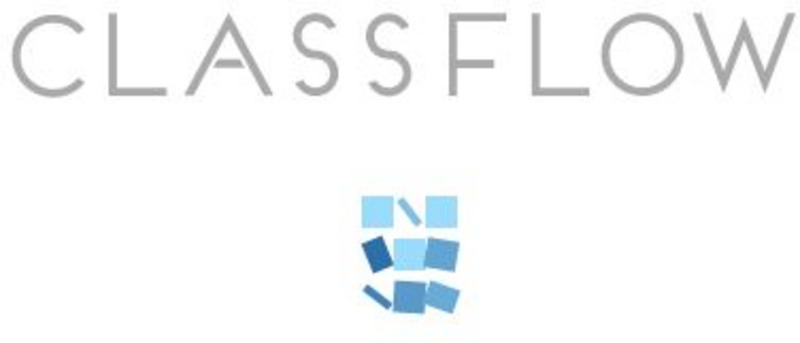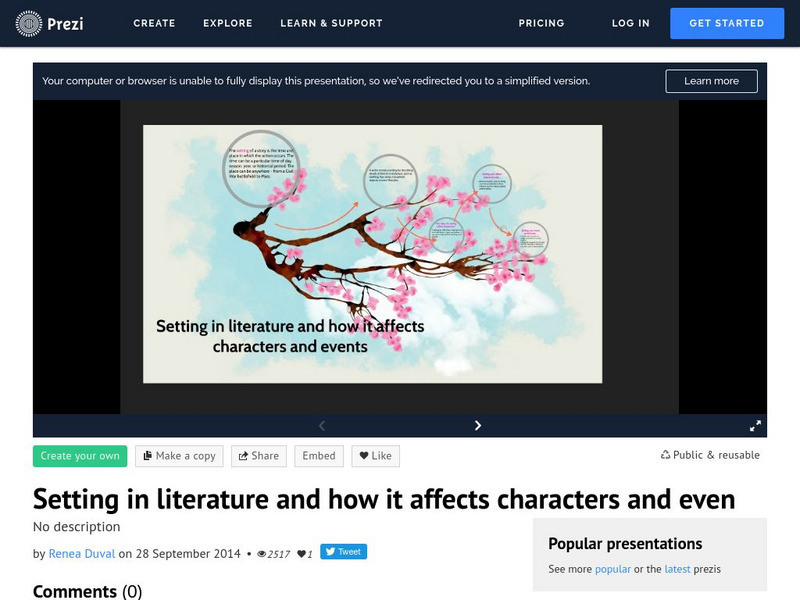Hi, what do you want to do?
Houghton Mifflin Harcourt
Holt, Rinehart and Winston: Elements of Literature: Analyzing a Myth [Pdf]
A brief worksheet/organizer in which students can analyze the content of a given mythological story. Includes five questions and space for students answers and analysis.
Houghton Mifflin Harcourt
Holt, Rinehart and Winston: Elements of Literature: The Short Story [Pdf]
A short group of exercises for students concerning the elements of a short story. Allows students to examine the major story elements, then apply those elements to a given piece of literature.
Houghton Mifflin Harcourt
Holt, Rinehart and Winston: Elements of Literature: Determining Methods of Characterization [Pdf]
A brief organizer in which students can document how a character in literature is presented, through either direct or indirect characterization. Provides labels, examples, and sections for textual support.
TES Global
Blendspace: Reviewing Elements of a Story
A ten-part learning module with links to images, texts, websites, and videos to about story elements.
TES Global
Blendspace: Types of Plot Conflict
A six-part learning module with links to texts and videos about the six basic plot conflicts in literary texts.
ClassFlow
Class Flow: Short Story Unit Applying Literary Terms
[Free Registration/Login Required] This flipchart is a review and assessment of a collection of short stories. The following literary terms are applied to the stories: plot structure, types of characters, characterization, irony,...
ClassFlow
Class Flow: Story Elements
[Free Registration/Login Required] This flipchart defines the elements of a story: character, setting, theme, and conflict.
Other
Prezi: Dialogue and Plot
A slideshow describing the elements of plot as well as the importance of dialogue as it interacts with different plot elements.
ClassFlow
Class Flow: Graphic Organizer Story Events
[Free Registration/Login Required] This graphic organizer provides a framework for students to analyze the main events of a story or historical event. A template for students to follow is given.
ClassFlow
Class Flow: Leads
[Free Registration/Login Required] Students will learn about different types of leads for stories. This interactive flipchart has examples of leads, Activote assessment, and activities for students to work on independently or in groups....
Can Teach
Can Teach: Examining a Character's Personalities
In this lesson plan students will be able to understand the different personalities of a character by examining how they act when in contact with other characters. Lesson plan indicated for 4th grade and above.
Can Teach
Can Teach: Introduction to Character Traits
In this lesson plan students will better understand what and how to generate the traits of a character. Lesson plan indicated for 4th grade and above.
Annenberg Foundation
Annenberg Learner: Literature: Constructing Plot
This site has an explanation of the elements of a plot with clear examples. Click on "What goes into plot" for more information.
Sophia Learning
Sophia: Conflict Types
This lesson introduces types of conflict that appear in fiction writing.
Sophia Learning
Sophia: Setting and Conflict
This lesson explains the relationship between setting and conflict in fiction writing.
Houghton Mifflin Harcourt
Holt, Rinehart and Winston: Elements of Literature: Historical/biographical Analysis Chart [Pdf]
A short graphic organizer which allows students to assess the historical and biographical influence on a piece of literature.
Houghton Mifflin Harcourt
Holt, Rinehart and Winston: Elements of Literature: Evaluating Character and Plot in Literature [Pdf]
A brief graphic organizer which allows students to evaluate the literary elements of plot and character in a given piece of literature. Also includes a section which requires textual support. PDF (requires Adobe Reader).
Other
Richmond County School System: The Elements of Drama [Pdf]
Use this graphic organizer to help examine the elements of a drama.
ClassFlow
Class Flow: Evaluating Plot & Conflict
[Free Registration/Login Required] Students learn to evaluate types of conflict within literature. This flipchart describes the various types of conflict and assesses the students' ability to differentiate them.
Sophia Learning
Sophia: Indirect vs. Direct Characterization
This lesson introduces indirect (learn about the characters through speech, thoughts, actions, physical description, other character's feelings) and direct characterization (author tells the reader about the character) in fiction...
Other
Prezi: How Does the Time Period of the Setting Affect the Plot?
Learn how setting affects character and how time period affects plot.
Other
Prezi: Setting in Literature and How It Affects Characters and Events
A slideshow describing the elements of plot as well as the importance of dialogue as it interacts with different plot elements.





![Holt, Rinehart and Winston: Elements of Literature: Analyzing a Myth [Pdf] Graphic Holt, Rinehart and Winston: Elements of Literature: Analyzing a Myth [Pdf] Graphic](http://lessonplanet.com/content/resources/thumbnails/410056/large/bwluav9tywdpy2symdiwmduymc03nzc3ltexmgnrbhyuanbn.jpg?1589985144)
![Holt, Rinehart and Winston: Elements of Literature: The Short Story [Pdf] Unit Plan Holt, Rinehart and Winston: Elements of Literature: The Short Story [Pdf] Unit Plan](http://lessonplanet.com/content/resources/thumbnails/410057/large/bwluav9tywdpy2symdiwmduymc03ode4lte1bw5wdgouanbn.jpg?1589985144)
![Holt, Rinehart and Winston: Elements of Literature: Determining Methods of Characterization [Pdf] Graphic Holt, Rinehart and Winston: Elements of Literature: Determining Methods of Characterization [Pdf] Graphic](http://lessonplanet.com/content/resources/thumbnails/410109/large/bwluav9tywdpy2symdiwmduymc0ymjy4mc0xz3pvamf3lmpwzw.jpg?1589985471)

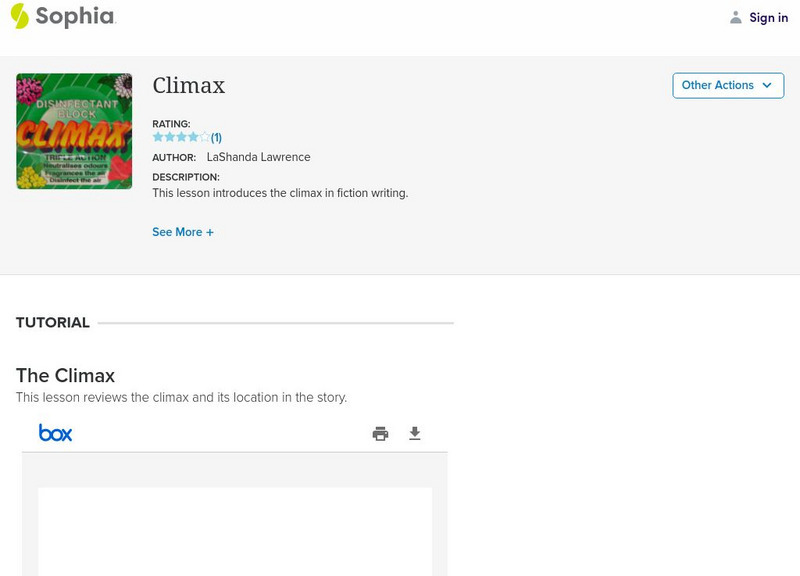
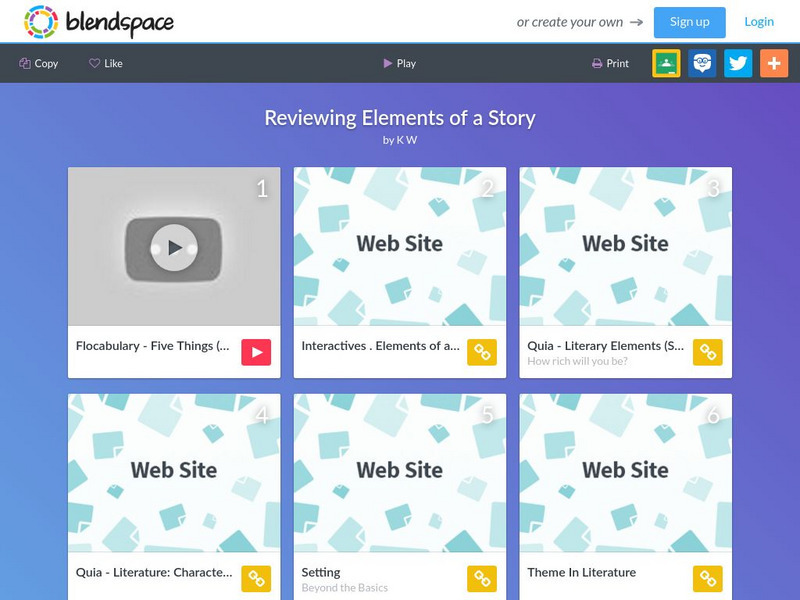


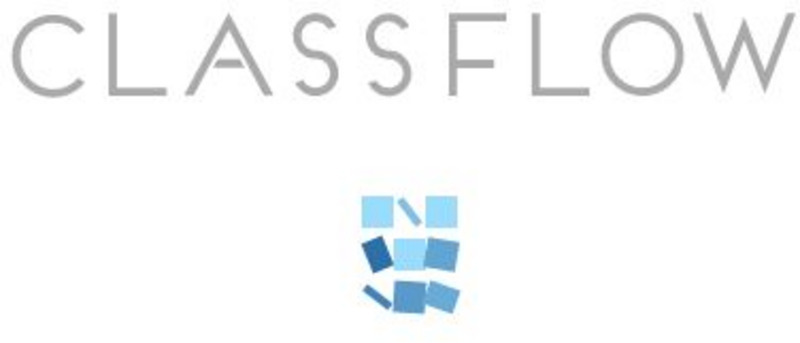


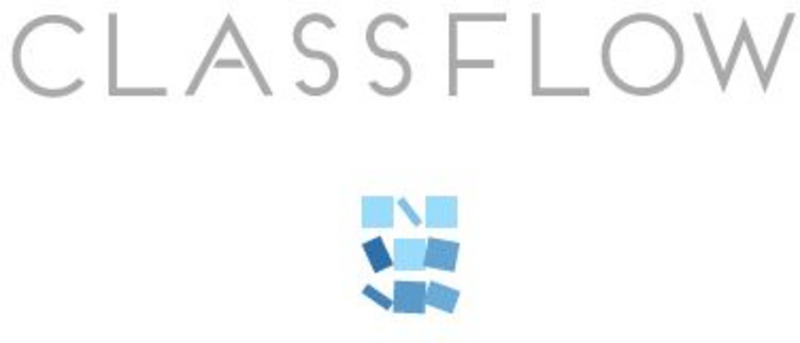
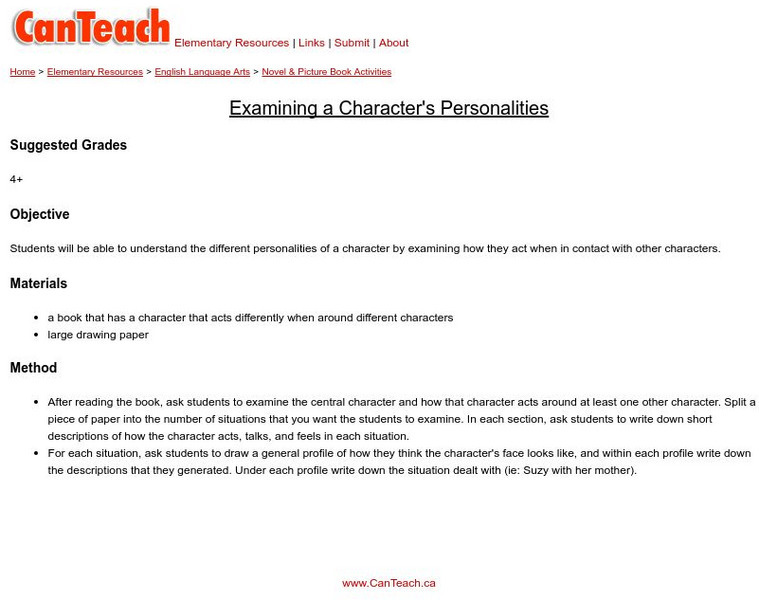


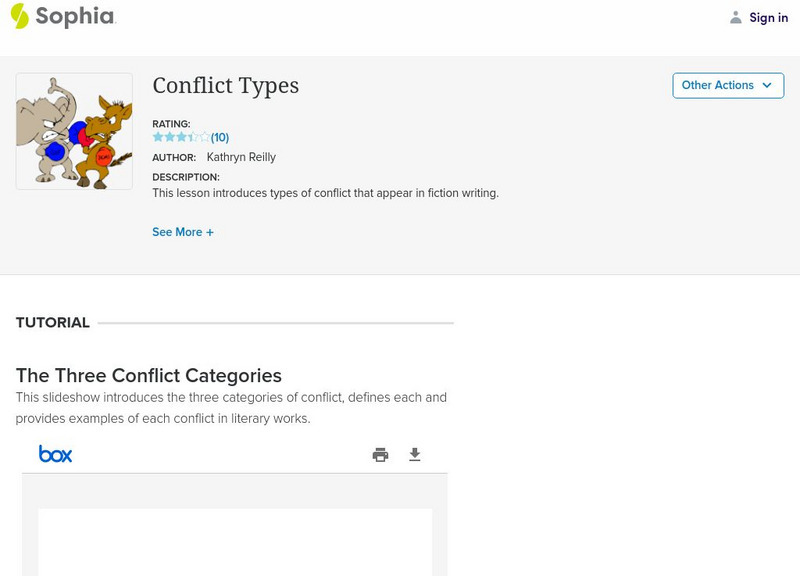

![Holt, Rinehart and Winston: Elements of Literature: Evaluating Character and Plot in Literature [Pdf] Graphic Holt, Rinehart and Winston: Elements of Literature: Evaluating Character and Plot in Literature [Pdf] Graphic](http://lessonplanet.com/content/resources/thumbnails/410148/large/bwluav9tywdpy2symdiwmduymc0yotyymi0xdjnoywrjlmpwzw.jpg?1589985608)
